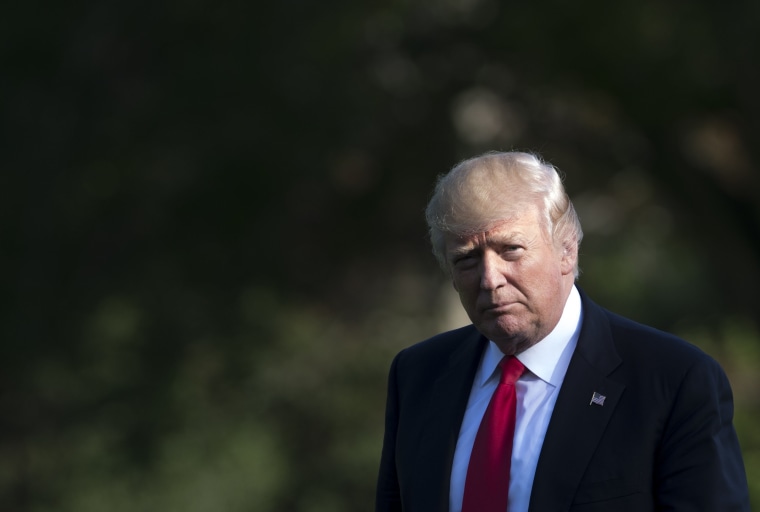With the White House gripped by scandal, the various Sunday shows were eager to have members of Donald Trump's team on the air to address a variety of questions. That didn't happen.On Fox News, Chris Wallace
told viewers yesterday he extended an invitation to the White House, which said it'd offer guests to discuss the president's foreign travel, but not Trump's decision to fire FBI Director James Comey. When the host balked, the White House "put those officials on other shows," Wallace said.And one of those guests was Nikki Haley, the U.S. Ambassador to the United Nations, who had
a line at the ready when ABC News' George Stephanopoulos brought up the president's scandals and Comey's firing.
"What I can tell you is the president is the CEO of the country. He can hire and fire whoever he wants. That's his right. Whether you agree with it or not, it's the truth.... [W]e have to remember, [Trump] can hire and fire anybody else that he wants to do."
Stephanopoulos noted in response, "That is indisputably true." I wouldn't go nearly that far.Trump is not the "CEO of the country." He's not even the CEO of the federal government. He's the head of one branch, but there are two co-equal branches.Moreover, while the president has broad personnel powers, they're not unlimited. Yes, on paper, Trump had the legal authority to fire the director of the FBI, but a president can't simply "hire and fire whoever he wants." Nearly every top position requires Senate confirmation -- including the leadership post at the FBI -- and a wide variety of other executive-branch positions have civil-service protections that require a good reason before an official is dismissed.But more to the point, a president can't obstruct justice, either.In the case of James Comey's firing, Donald Trump
acknowledged -- out loud, on the record, on camera, in public -- that he was motivated to fire the FBI director because of the investigation into Trump's Russia scandal.The
Washington Post had
a good piece on this over the weekend:
In a television interview and on Twitter, the president has given ammunition to arguments by some legal experts that his actions constitute a possible case of obstruction of justice -- a central charge in the impeachment proceedings against two presidents in the last 43 years.Obstruction is "a very mental-state-based crime," said Duke University law professor Samuel W. Buell, a former federal prosecutor. "It's all about the purpose with which it's done. In theory, trying to intimidate, silence, or even influence someone who is investigating you could be obstruction of justice."
Politico quoted Peter Zeidenberg, a former federal prosecutor, who explained, "Just because it is legal to fire Comey does not end the analysis. It is legal to throw one's own computer in the river. But if the reason you are throwing that computer in the river is because of damaging information that you have reason to know the government is seeking as part of a criminal investigation and you are trying to hide, you have an obstruction of justice case."In this case, the president has been
strikingly candid about his reasoning: Comey was investigating Trump's campaign; the investigation into the scandal was intensifying; Trump finds the scandal terribly inconvenient; so he fired the director of the FBI.It may make Haley feel better to believe Trump "can hire and fire anybody," but there are some pesky laws that may yet get in the way.
